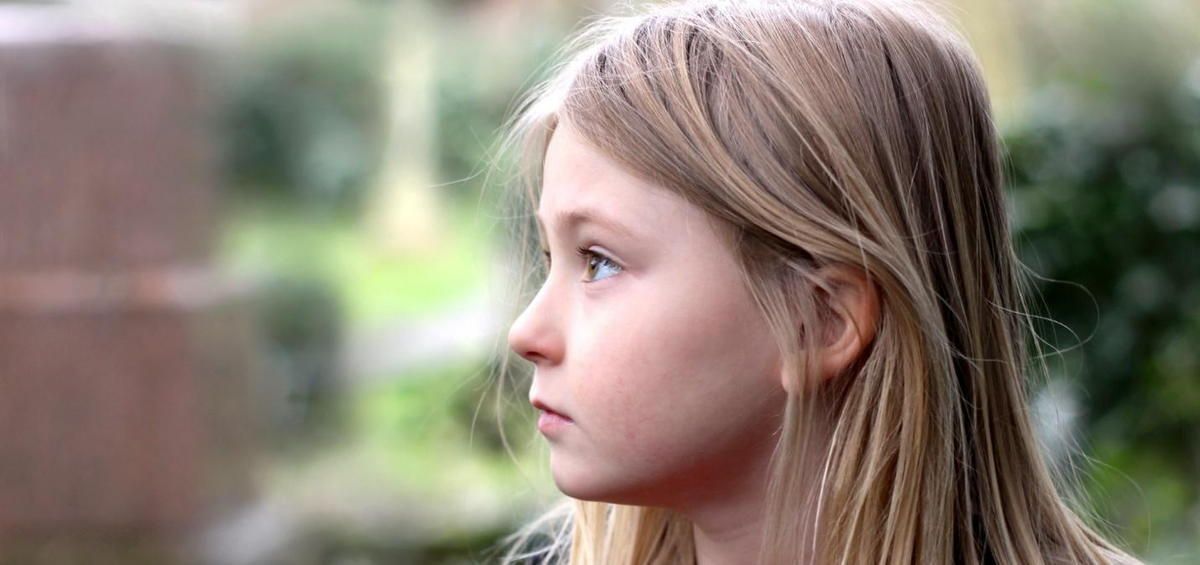How do I help my child feel better about her body image and weight when she lives in a society obsessed with dieting?
A few years ago I saw a story on Good Morning America about a married couple whose job is to scout for potential supermodels. The story featured three teenage girls (ALL already painfully thin, I may add) who were “discovered” by this pair. The agents were proud to disclose their regimen for transforming the teens into supermodel material.
First, they are put on a “bare bones diet” of “lettuce, carrots and egg whites”. Then they are expected to “train like professional athletes,” using the treadmill up to 10 miles per day. One of the teens was actually filmed pleading, “Feed me!” (Check out the full story here).
When was the last time you saw a professional athlete eating only lettuce, carrots and egg whites? Michael Phelps eats a 12,000 calorie/day diet when training for the Olympics. Girls then see these supermodels, hear about their “lettuce, carrots, and egg whites” diet, and begin to adopt the same eat-very-little-and-exercise-too-much regimen.
These habits result not in the girls becoming supermodels; they result in the girls developing eating disorders, such as anorexia, bulimia, emotional eating and compulsive exercising. Another not-so-surprising fact is that the modeling industry is notorious for having an astronomical number of members with eating disorders.
These twisted notions of what beauty is and how to achieve it need to be counteracted with healthy lifestyle knowledge.
How We View Ourselves Matters
In my psychotherapy practice I have had the opportunity over the years to talk intimately with hundreds of women and girls about how they feel about their bodies. What I've found is that, with the right kind of help, recovery from years of debilitating eating disorder symptoms is often relatively quick, but body hatred is much harder to eradicate.
A study done by the November 12, 2011 issue of Oprah magazine drove home this point. They compared women in their early 60s and girls in their late teens to find out how body image changes (or not) over the life span. When asked "Do you think you have a healthy body image,” 62.1% of the 60+ year olds said yes, compared to 56.8% of teens. Could it really be true that body image improves less than 6% over the course of 40 years?
In The Media
It's no wonder when we consider the way the mainstream media bombards women and girls with unrealistic images of the "ideal woman.” Case in point -- Brittany Spears participated in an article for Marie Claire where she allowed the magazine to place her original pictures next to the final airbrushed ads. Take a look here . The comparison is astonishing -- wrinkles and blemishes have disappeared, legs, waist and derriere slimmed several sizes, all with a few clicks of a mouse.
The more daughters see of the idealized, unrealistic versions of a woman’s figure, the more they compare these versions to their own real shapes. And just as these Photo Shopped pictures present unrealistic standards, so too do girls begin to attempt unrealistic means of manifesting these images in real life.
Achieving a Positive Body Image
You may ask how children can ever hope to experience positive body image when media images and society's messages about beauty are so distorted. Here are a few ways to start:
- Tell your child to act "as if” and to tell herself regularly that she is beautiful even if she feels she’s not. Thoughts create reality!
- Tell her not to allow herself any put-downs when she looks in the mirror;
- Don't participate in turning women against each other by comparing their bodies. We all come in different and beautiful shapes and sizes;
- Encourage her to look up to women who are admirable in character, achievements and kindness rather than looks;
- Honestly examine your own feelings as a parent about dieting, weight and body image and get support to change them if they are unhealthy;
- Write to magazines protesting their unrealistic portrayals of the female body;
- If she can't stop repetitive thoughts in her head about feeling fat or ugly, remind her that these thoughts get worse when she is feeling stressed about something unrelated to her body image. Help her talk out what happened that day, or what she is thinking about that is bothersome.
- Register her (and yourself, if you need help with your own body image) for our positive body image texting program Text2bwell. It is an 8-16 week program that helps fight negative body image through guidance and help from me on your smartphone.
Whatever you do, don't give up. Your child can achieve a healthy body image – it takes constant talking back to negative messages, but she can do it!










